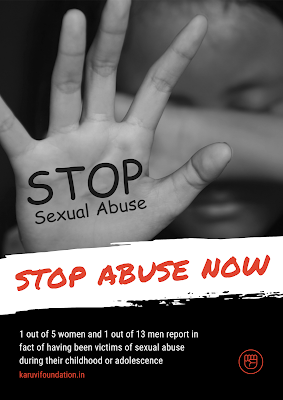The abuse of minors: Sexual violence against children and adolescents still represents a difficult
Its the serious issue to address today because as we know it activates many resistances at a cultural level, especially if it occurs within significant and founding relationships such as family ones, or in places of care and education. by people in whom children and adolescents should be able to place their trust.
It is a form of violence that shakes consciences and puts into question the ability of adults to be attentive and responsible subjects in front of their children. Literature and research conducted around the world take us back to complex, traumatic and difficult conditions. Although part of the phenomenon remains underestimated given the low rate of reporting or requests for help, data provided by the World Health Organization (Global status report on violence prevention, 2014) present a worrying picture: 1 out of 5 women and 1 out of 13 men report in fact of having been victims of sexual abuse during their childhood or adolescence.
Unicef research also denounces that around 15 million girls between the ages of 15 and 19 worldwide have declared to have been sexually abused and in Europe 2.5 million young women have suffered forms of sexual violence before the age of 15.
The very serious consequences of sexual violence on the growing personalities of boys and girls are well known. Traumas not treated in childhood also lead to adulthood wounds that cannot be healed except with careful re-elaboration work to regain confidence in oneself and in others. Other forms of sexual abuse have emerged in recent years through the use of the web and social networks and it has been shown that the damage is no less serious: the phenomenon of grooming has been known for some time, as well as the exploitation of children in the production of child pornography material.
A society that wants to guarantee the rights of the weakest must address this issue, not only when the news in its cruel reality brings us back to extreme situations, which were not intercepted early, but through a national strategy for the contrast and prevention of violence, in line with Target 16.2 "Eliminating abuse, exploitation, trafficking and all forms of violence and torture against children" of the United Nations 2030 Agenda for Sustainable Development (Resolution adopted by the General Assembly on 25 September 2015, A / RES / 70/1).
The first thing to do, as has been underlined for a long time, is to get to know the phenomenon from a quantitative and qualitative point of view in order to take effective and adequate of adolescence who regrettably stressed that in our country "a national system for the collection, analysis and dissemination of data and a research program on violence and ill-treatment of minors has not yet been established".
It is also essential to invest in systematic prevention, awareness and information campaigns. In particular, with respect to the issue of sexual abuse, the importance of primary prevention is noted, which takes place first of all through sexual and emotional education in schools.
A further problem is the protection of alleged victims in judicial processes with the unavoidable need for them to have support and protection, and careful and competent listening, in particular art. 4 which reinforces the need to ensure, in every state and level of the procedure, emotional and psychological assistance to the underage victim.
It is hoped that our country will start as soon as possible, through the Ministry of Justice, in coordination with the other competent Ministries, the elaboration of national guidelines, which can guide the action of all the actors in the criminal proceedings and protection and protection with defined procedures, and finally and unequivocally reconcile the right to care of the alleged victim, with the guarantees provided for the accused.
In this way we could remember with greater awareness and real commitment, the 30 years of the UN Convention, not only in celebrations but with actions that attest that the rights of boys and girls are not just words.





Comments
Post a Comment